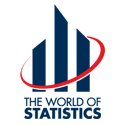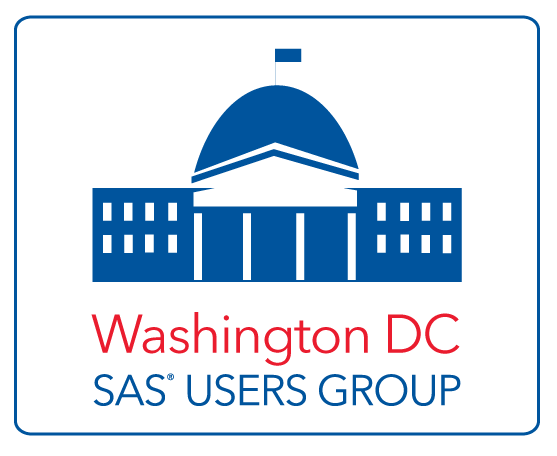January 2003
Contents:
- Judges For The 2003 Science Fairs
- JPSM Citation Program
- Education Announcement:
- Theory of Sample Surveys - STAT 4426
(USDA Graduate School Course, January 13 to March 31, 2003)
- Theory of Sample Surveys - STAT 4426
- SIGSTAT Topics for January 2003 to May 2003
- Employment Opportunities
- Short Courses
- Seminars
- Note From The WSS NEWS Editor
- WSS People
- PDF Versions:
(Requires Adobe Acrobat Reader)
Newsletter
Area Meetings and Courses
Judges For The 2003 Science Fairs
Volunteers are needed to represent the Washington Statistical Society next spring as judges in five regional science fairs in Northern Virginia, suburban Maryland and the District of Columbia. Since 1986, WSS has provided special awards at these fairs to students whose projects demonstrate excellence in data analysis or the application of statistical methods. Those who have participated in this activity have very much enjoyed the opportunity to interact with the students and to observe the widely diverse projects which are presented. The fairs are held on a Saturday morning in mid-March to mid-April. The only time required is that one Saturday morning, plus one weekday lunchtime meeting to discuss judging strategy.
If you would like to be a WSS science fair judge next spring, please e-mail Lee Abramson at lxa@nrc.gov by January 10, and include your work and home phone numbers, your fax number and your mailing address. If you judged last spring, there is no need to contact Lee unless your e-mail address or phone number has changed. If you have any questions, please call Lee at 301-415-6180.
Return to topJPSM Citation Program
The citation program is built around the JPSM two-day short courses. The program is designed to provide the working professional, or student, with state of the art knowledge, current principles and practices of complex surveys and provide practical skills of day-to-day utility.
Completion of the citation involves taking a semester length JPSM credit-bearing course "Fundamentals in Survey Methodology" and eight JPSM short courses, of which four must be from the core courses. For information and application materials visit the website http://www.jpsm.umd.edu/citation/Default.htm or call 301-314-7911.
Return to topEDUCATION ANNOUNCEMENT
USDA Graduate School Course Offering
Theory of Sample Surveys - STAT 4426
Mondays, 6-8 P.M., 1/13 to 3/31/03
Tuition: $279
Instructor:
Phillip S. Kott, National Agricultural Statistics Service
Description:
This course provides a solid introduction into modern survey sampling theory. The syllabus covers the first 9 chapters (probability sampling, stratification, allocation, multi-stage sampling, ratio and regression estimation, domain estimation, variance estimation in complex surveys, and methods for handing nonresponse) and Chapter 12 (two-phase sampling, capture-recapture estimation, and rare populations) of Sampling: Design and Analysis by Sharon L. Lohr. This is augmented by the instructor's notes throughout and a discussion of the analysis of survey data at the end. No prior knowledge of the subject matter is assumed, but unlike STAT 350 (Introduction to Sample Surveys), this course focuses more on the theoretical (why we do it) than the practical (what we do). This course is recommended for 2 semester hour credit(s) by the American Council on Education/College Credit Recommendation Service (ACE/CREDIT).
Prerequisites:
At least one college-level course in mathematics or statistics and a familiarity with fundamental probabilistic concepts (expectations, variances) is essential. Students with some knowledge of calculus and matrix algebra will get more out of this course than those without.
For more information see the USDA Graduate School web site at www.grad.usda.gov or call (202) 314-3650.
Return to topSIGSTAT Topics for January 2003 to May 2003
January 15, 2003 - SuperSTAR
The SuperSTAR software suite delivers insight by enabling you to manipulate and analyse any quantitative data at any aggregation level you choose, from microdata (transactions, customer records etc) to macrodata (aggregated data).
February 12, 2002 - PROCs MI & MIANALYZE in SAS/STAT
SAS/STAT software, Version 8, introduces the experimental MI and MIANALYZE procedures for creating and analyzing multiply imputed data sets for incomplete multivariate data.
February 26, 2002 - "Live Graphs" [joint presentation with the DCSUG Desktop SIG]
Dave DesJardin, formerly of the Census Bureau, will use SAS JMP and Insight to show how to easily generate "live" graphs effectively displaying statistical data.
March 12, 2003 - R Graphics
R is `GNU S' - A language and environment for statistical computing and graphics. R is similar to the award-winning S system, which was developed at Bell Laboratories by John Chambers et al. It provides a wide variety of statistical and graphical techniques (linear and nonlinear modelling, statistical tests, time series analysis, classification, clustering, ...).
April 9, 2003 - SAS/IML Workshop 2.0
SAS/IML Workshop is a graphical user interface and extension of SAS/IML software that enables you to explore data interactively using standard statistical graphics and tables.
May 14, 2003 - SAS 9.0
SAS System 9 is the most significant release in the history of SAS. With an unprecedented feature and product set it delivers SAS® world-class analytical, data manipulation and reporting capabilities within a completely new framework that is scalable, highly interoperable, and easy to manage and use.
SIGSTAT is the Special Interest Group in Statistics for the CPCUG, the Capital PC User Group, and WINFORMS, the Washington Institute for Operations Research Service and Management Science.
All meetings are in Room S3031 (Food Safety and Nutrition Room), 1800 M St, NW from 12:30 to 1:30. Enter the South Tower and take the elevator to the 3rd floor to check in at the guard's desk.
First-time attendees should contact Charlie Hallahan, 202-694-5051, hallahan@ers.usda.gov and leave their name. Directions to the building and many links of statistical interest can be found at the SIGSTAT website, www.cpcug.org/user/sigstat/
Return to topNote From The WSS NEWS Editor
Items for publication in the March 2003 WSS NEWS should be submitted no later than January 28, 2003. Please e-mail items to michael.feil@usda.gov.
Return to topClick here to see the WSS Board Listing (pdf)
Return to top






